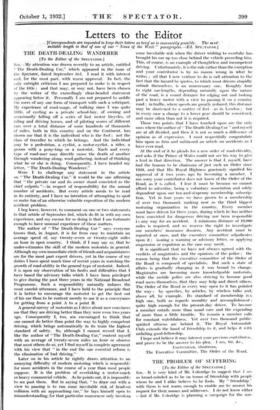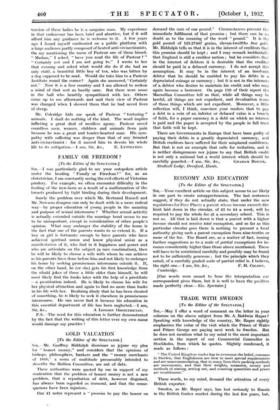THE PROBLEM OF SUFFERING
• [To the Editor of the SPECTATOR.] SIR,—It is very kind of Mr. Coleridge to suggest that I am so broad-minded as to be on terms of friendship with people whom he and I alike. believe to be fools. My " friendship !' with them is ,not warm. enough. to enable me to answer his request. for their, names.and addresses.. I do not know either —but if Mr. Coleridge is planning a campaign for the con- version of these ladies he is a sanguine man. My experience in that endeavour has been brief and abortive, but if it will afford him any guidance he is welcome to it. A few years ago I found myself confronted on a public platform with a large audience partly composed of heated anti-vivisectionists. On my mentioning the name of Pasteur one of them hissed. " Madam," I asked, " have you read the life of Pasteur ? " " Certainly not and I am not going to." I wrote to her that evening and asked what would she do if she had an only child, a beautiful little boy of ten, who was bitten by a dog supposed to be mad. Would she take him to a Pasteur Institute round the corner? Again she answered, "Certainly not." Now it is a free country and I am allowed to reckon a mind of that sort as hardly sane. But there were some in the hall who heartily sympathized with her. Others came up to me afterwards and said their view of Pasteur was changed when I showed them that he had saved lives of sheep.
Mr. Coleridge bids me speak of Pasteur " torturing " animals. I shall do nothing of the kind. The word implies inflicting a great deal of needless agony. Pasteur saved countless men, women, children and animals from pain because he was a great and tender-hearted man. His sym- pathy with suffering was deeper than that of any frenzied anti-vivisectionist : for it moved him to devote his whole life to its mitigation.-1 am, Sir, &c., E. LYTTELTON.















































 Previous page
Previous page